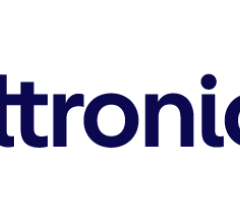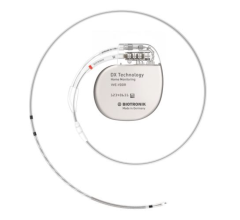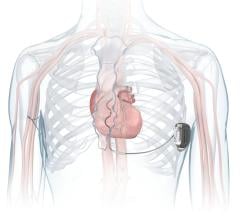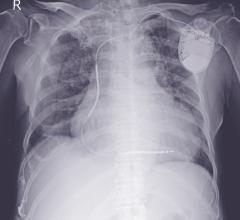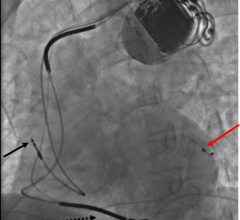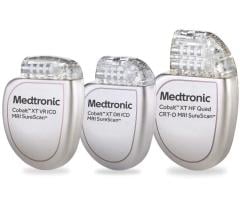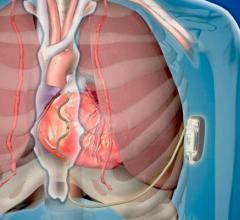
ACC/HRS Release Appropriate Use Criteria for ICDs, CRT
March 21, 2013 — The American College of Cardiology (ACC) and Heart Rhythm Society (HRS), along with key specialty societies, released appropriate use criteria for implantable cardioverter-defibrillators (ICDs) and cardiac resynchronization therapy (CRT) devices. The document provides assessed levels of appropriateness for implanting the devices in 369 real-life clinical scenarios, with the goal of enhancing physician and patient decision-making and improving care and health outcomes.
ICDs monitor the heart’s rhythms and correct arrhythmias (abnormal heartbeats) by providing electrical pulses to the heart. By immediately responding to any abnormal rhythm, ICDs help prevent sudden cardiac death. CRT uses an implantable device to synchronize the beating of the heart’s left and right ventricles. This improves the heart’s efficiency and reduces its stress. While both ICDs and CRT have expanded treatment options for cardiac patients, the ACC and HRS examined their use as part of an ongoing effort to critically and systematically review the diagnostic tests and procedures involved in cardiovascular care.
The criteria focus on scenarios that were derived from physician experience, clinical practice guidelines and results of studies examining device implantation. The scenarios identify “real-life” clinical situations encountered in daily practice. These clinical presentations include patients that may not be specifically covered by clinical guidelines, which the organizations hope will provide valuable assistance for decision-making by physicians and patients.
“The goal of this document is to help inform medical decisions and assist clinicians and stakeholders in understanding areas of both consensus and uncertainty, while identifying areas where there are gaps in knowledge that warrant further research,” noted Andrea M. Russo, writing committee co-chair and director of electrophysiology and arrhythmia services at Cooper University Hospital.
The scenarios cover six areas: ICDs for secondary prevention, ICDs for primary prevention, co-morbidities, CRT devices, generator replacement, and dual- versus single-chamber ICDs.
A 10-member writing committee drafted the scenarios, while a separate technical panel rated each on a numerical scale as “Appropriate” (median 7 to 9), “May Be Appropriate” (median 4 to 6), or “Rarely Appropriate” (median 1 to 3). Of the 369 scenarios, 45 percent were deemed Appropriate, 33 percent were rated May Be Appropriate, and 22 percent were determined Rarely Appropriate.
The writing committee stated that the appropriate use criteria can help inform the decision-making process but should not be used as a substitute for careful clinical judgment and clinical practice experience, nor current coverage and reimbursement policies.
“The decision to implant an ICD or CRT device is often complex, based on clinical evidence and clinical judgment, while taking into account co-morbidities and other individual patient factors,” said Russo. “While this document was designed to help inform clinical decision-making, it does not establish ‘rules’ by which decisions should be made in clinical practice. Healthcare providers and other stakeholders should continue to acknowledge the pivotal role of clinical judgment in determining whether device implantation is indicated for an individual patient.”
Russo added that the appropriate use criteria “can also be used to create algorithms or educational tools that help identify resource utilization or variations in care.” These tools can be used at the point of care — such as hospitals or physician offices — where utilization decisions are made. Data generated from these tools or collected in registries can be used to identify the patient mix for these procedures for individual institutions. This information can then be used for benchmarking over time and for comparison to other organizations.
The work of the writing committee and technical panel was supported exclusively by the ACC, the HRS and the other partnering societies without commercial support. All members were required to disclose industry relationships, which were reviewed by the Appropriate Use Criteria Task Force.
The "ACCF/HRS/AGS/AHA/ASE/HFSA/SCAI/SCCT/SCMR 2013 Appropriate Use Criteria for Implantable Cardioverter-Defibrillators and Cardiac Resynchronization Therapy" is published on the websites of both the ACC and the HRS and will be published in the March 26, 2013 print issue of the Journal of the American College of Cardiology.
For more information: www.cardiosource.org/acc, www.hrsonline.org


 January 13, 2026
January 13, 2026 

